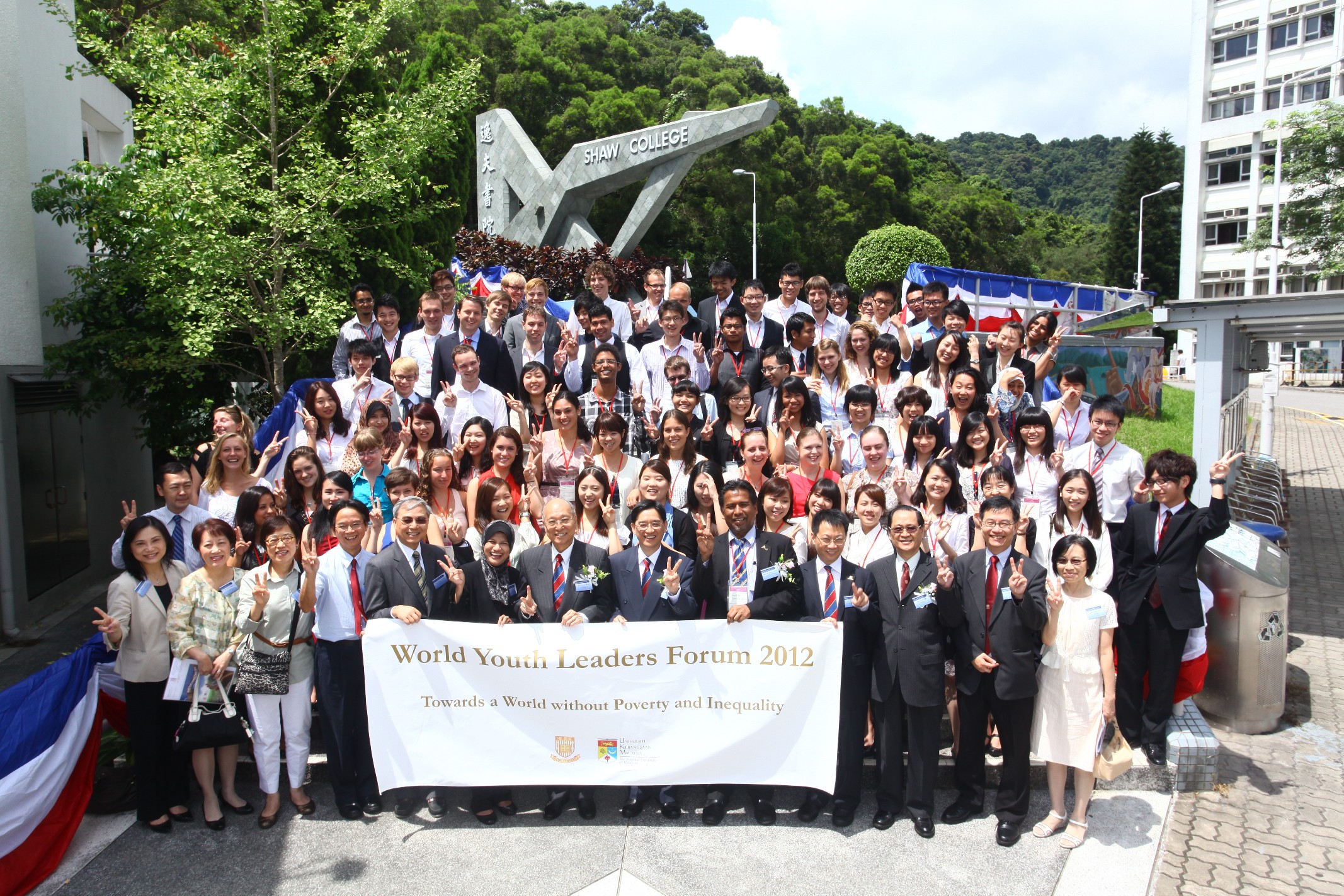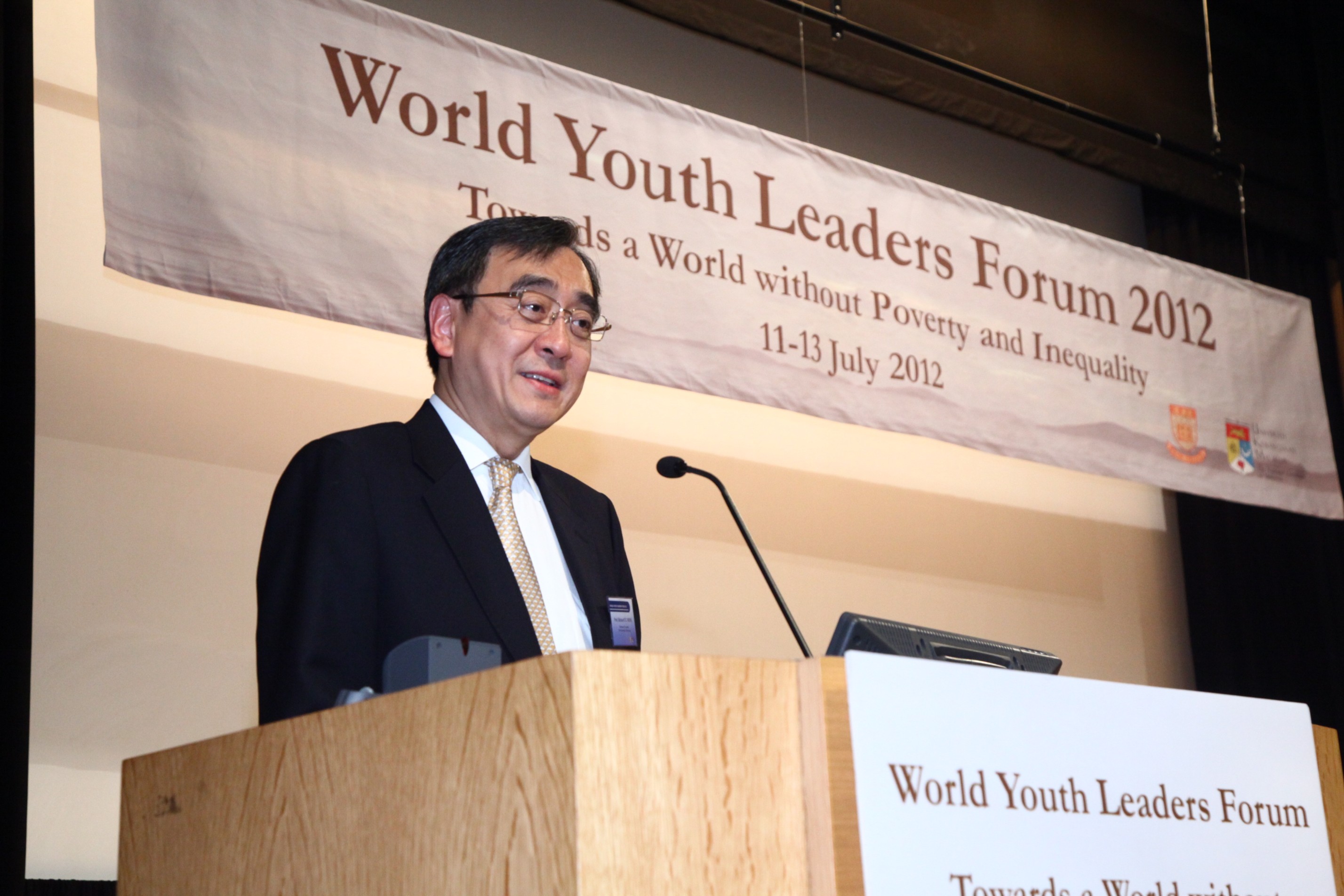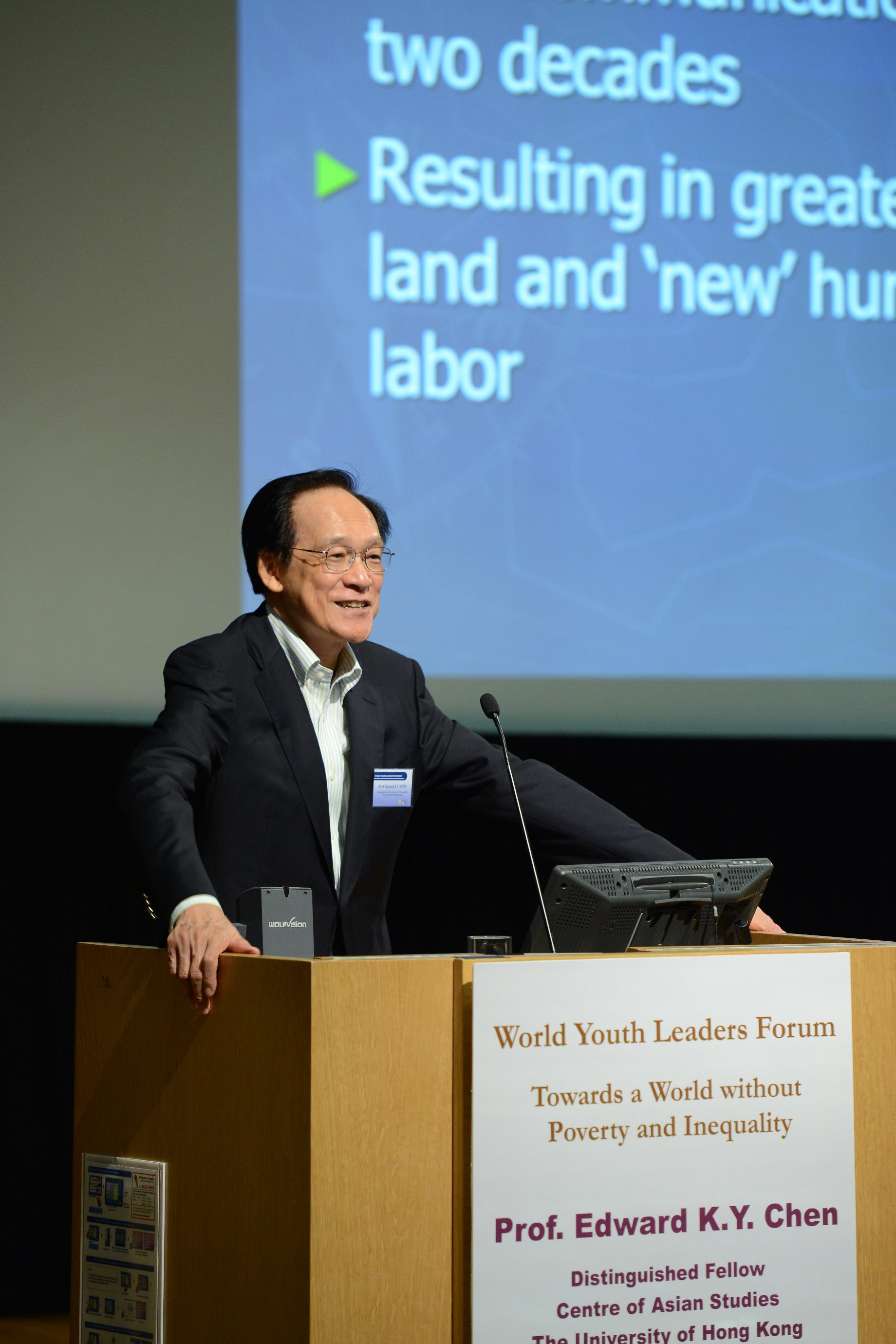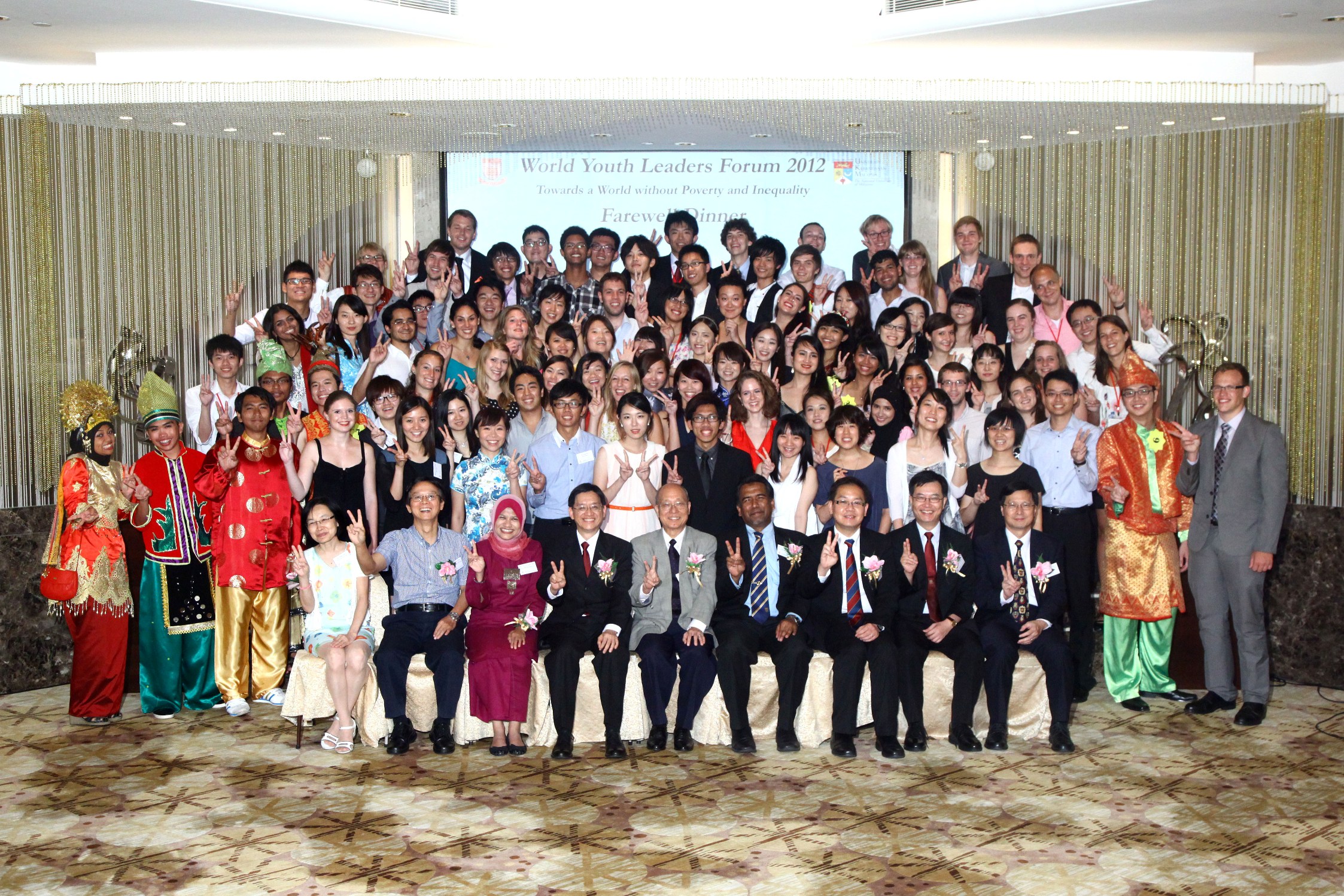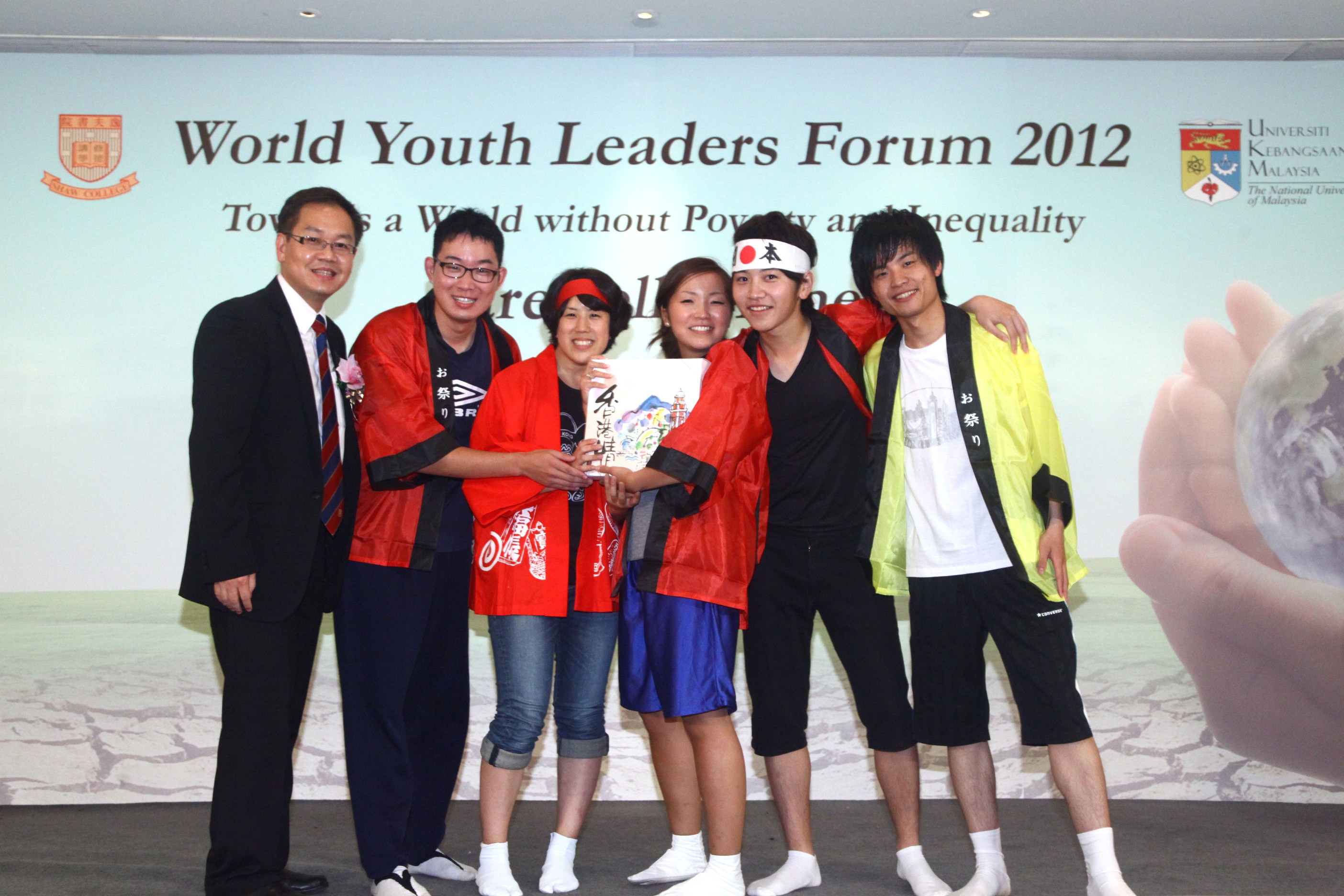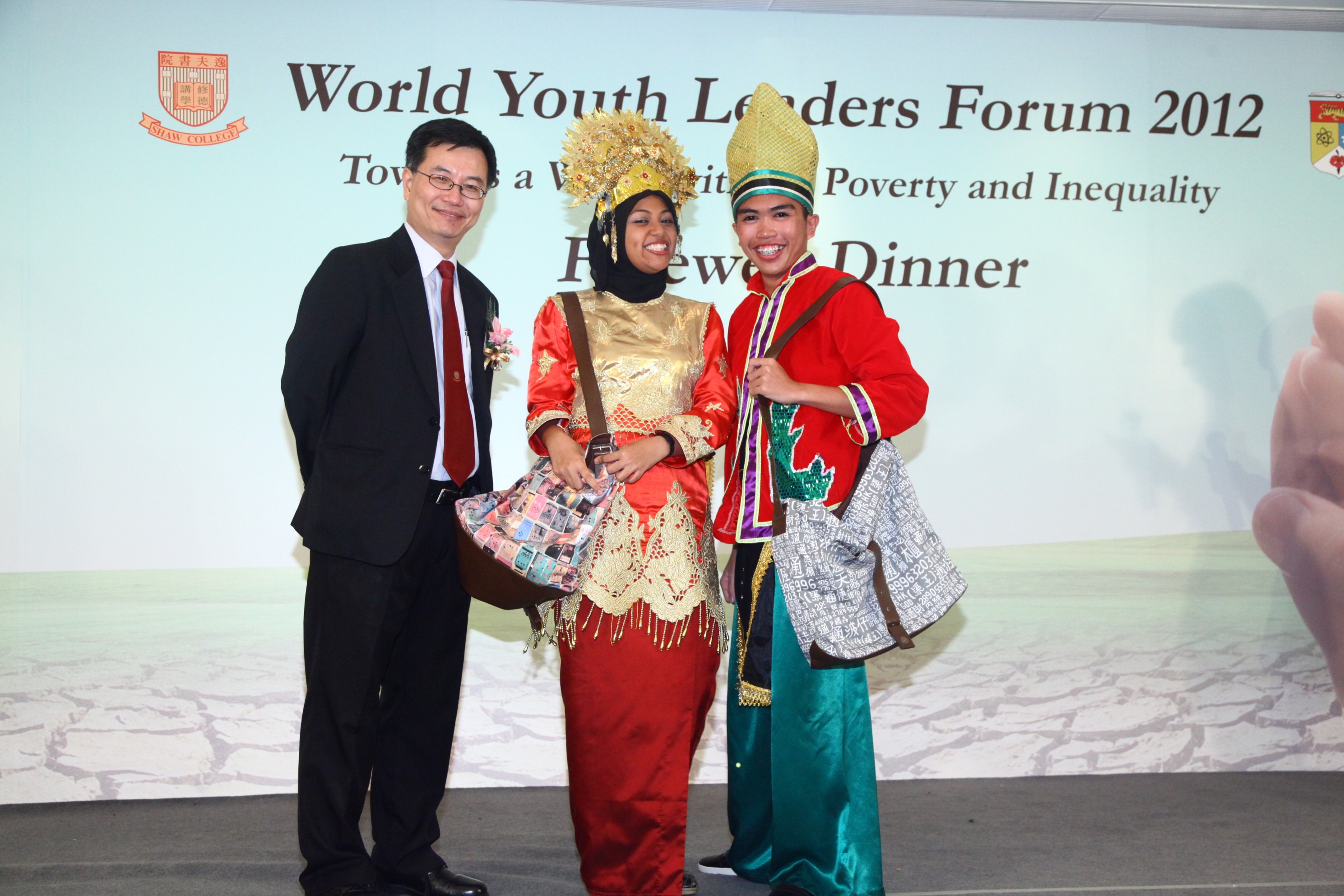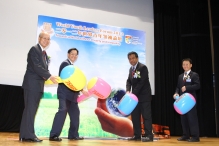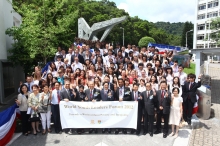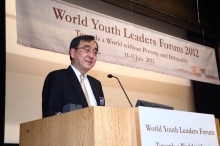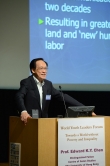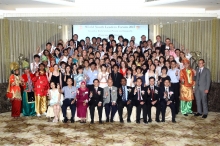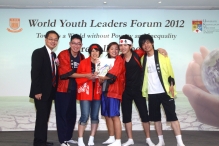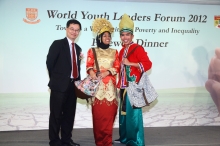CUHK
News Centre
CUHK Shaw College Hosts the Second ‘World Youth Leaders Forum’Pulling International Elites to Share Insights into Eradicating Poverty and Inequality of the World
Co-organized by Shaw College at The Chinese University of Hong Kong (CUHK) and The National University of Malaysia, the second ‘World Youth Leaders Forum’ (WYLF) was successfully held recently. With the theme ‘Towards a World without Poverty and Inequality’, the three-day WYLF invited over 80 young leaders from 15 countries and places to exchange views and enhance cross-cultural understanding and friendship.
The opening ceremony of WYLF was officiated by Prof. Yeung Yue-man, Convenor of Organizing Committee of WYLF; Dr. Lam Kin-chung, Advisor of the Organizing Committee and Patron of WYLF; Prof. Ir. Dr. Othman A. Karim, Deputy Vice Chancellor, Students and Alumni Affairs, The National University of Malaysia; and Prof. Andrew C.F. Chan, Head of Shaw College. Prof. Richard Y.C. Wong, Professor of Economics, The University of Hong Kong, was invited as the keynote speaker to share his insights into ‘Towards a World without Poverty and Inequality’ from an economic perspective. Professor Wong mentioned that the study of political economy has shown that politics and economics are intricately intertwined in both democratic and authoritarian states. He further supplemented that successful government policies empower a winning coalition of the population with economic rights; and effective protection of those rights would create favourable conditions for promoting rapid economic growth. The keynote speaker on the second day of forum, Prof. Anthony B.L. Cheung, Secretary for Transport and Housing, the Government of Hong Kong Special Administrative Region, addressed the theme from a social perspective. He focused on the role of government and public policy in poverty eradication and the fostering of a more compassionate and fairer society, and also discussed the limitations and pragmatic considerations of public interventions. Prof. Edward K.Y. Chen, Distinguished Fellow, Centre of Asian Studies, The University of Hong Kong, was the keynote speaker on the last day. He explained how the new economy has changed what the world needs for human resources, and as a result the pattern of national and international income and wealth distribution. He argued that to reduce poverty and income inequality, not only the level of education attained but more importantly the type of education provided does matter. Professor Chen further suggested that creativity and cultural values are important for socio-economic development.
Twenty-seven young leaders from 20 tertiary institutions around the world, including University of Calgary in Canada, The University of North Carolina in the USA, University of Copenhagen in Denmark, University of Helsinki in Finland and Peking University in China, presented their papers on economic, social and cultural sub-themes during the 3-day forum. Topics included ‘When Globalization is Not Good for Less Developed/Developing Countries: The Global Finance Industry and Uneven Development’, ‘Corporate Social Responsibility and Human Rights Combined: An Approach to Reducing Poverty and Inequality around the World’ and ‘Halves of Two Skies: A Comparative Study of Women’s Health and Access to Care in Switzerland and Morocco’. Over 50 young leaders also expressed their views on the theme with innovative poster designs and enjoyed fruitful discussions.
To conclude the forum, a farewell dinner was held in Hong Kong Jockey Club Shatin Club House. Highlights of the evening included the presentation of The Best Paper Awards and The Best Poster Awards to 17 brilliant young leaders, as well as a series of cultural performances such as Indian classical dance, singing of pop song, Macedonian and Finnish folk songs etc. A dynamic Japanese dance performance given by an energetic quintet was highly acclaimed by all guests and won the Best Cultural Performance Award. The Best National Costume Award went to a pair of fabulously-dressed couple from Malaysia who defeated eleven units of contestants by their stunning outfits.
Shaw College has been advocating its Five Pillars of whole-person education: nurturing moral character, serving the community, caring for motherland, developing global perspective, and protecting the environment. WYLF provided a platform for young leaders worldwide to exchange views on various global and regional topics, realizing Shaw College’s vision to help students develop global perspective.
(From left) Prof. Yeung Yue-man, Convenor of Organizing Committee of WYLF, Prof. Andrew C. F. Chan, Head of Shaw College, Prof. Ir. Dr. Othman A. Karim, Deputy Vice Chancellor, Students and Alumni Affairs, The National University of Malaysia and Dr. Lam Kin-chung, Advisor of the Organizing Committee and Patron of WYLF officiate at the opening ceremony of ‘World Youth Leaders Forum 2012’.
Over 80 young leaders from over 40 universities in 15 countries / regions assemble at Shaw College for World Youth Leaders Forum 2012.
Prof. Richard Y.C. Wong, Professor of Economics, The University of Hong Kong, shares his insights into ‘Towards a World without Poverty and Inequality’ from an economic perspective.
Prof. Edward K.Y. Chen, Distinguished Fellow, Centre of Asian Studies, The University of Hong Kong offers analysis from a cultural perspective of the theme of the Forum.
Young leaders enjoy their good time at the farewell dinner which concludes the ‘World Youth Leaders Forum 2012’.
The Japanese quintet receives the Best Cultural Performance Award from Prof. Justin C.Y. Wu (left), Associate Head of Shaw College.



